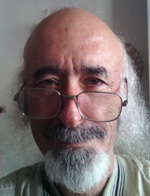By Dan Bloom

CHIAYI CITY, Taiwan — As readers around the world are finding out now, the Holocaust sex-and-romance novel by the non-Jewish Australian screenwriter Heather Morris titled The Tattooist of Auschwitz is not all that the feel-good, based-on-a-true story that it says it is.
Sure, the memoir published as a novel tells the alleged ”story” of a real-life Jewish tattooist, of Auschwitz, the late Lali Sokolov, and his wife, Gita (nee Furman) who met, and became sexually-active lovers in full view of their Nazi concentration camp guards. At least, that the story Morris would have you believe.
But three recent news articles in the international media are taking notice of some of the holes in Morris’ story, among them the New York Times, The Australian and the Daily Mail. Just Google ‘tattooist of Auschwitz’ and hit the “news” tab, to see what Australian journalist Caroline Overington had to say the other day about the he-said, she-said, they-said romance novel that Morris innocently and perhaps naively set in a Nazi concentration camp.
The Auschwitz sexcapade lovers survived the Holocaust, married after the war, and then moved to Melbourne, Australia, where they had a miracle baby, a son, Gary, now 60. Gary was said to be ”a miracle baby” because his mum Gita had him late in life and after doctors told her she would never be able to conceive children due to the experiments performed on her in the Nazi camp.
Now Lali and Gita are both dead, reunited in heaven according to Morris’ New Age religion. But the novel by a previously-unknown screenwriter wannabe is gathering controversy from not only from the New York Times and the San Diego Jewish World, but from several popular newspapers in Australia as well.
It’s too late to cancel or recall the book because one million copies are already sold and in readers’ hands worldwide. But there’s a movie being planned and the Hollywood project might very well be cancelled now that Holocaust historians and Jewish educators are quietly making their voices heard. The gathering storm is not a pretty picture.
According to The Australian newspaper, the two sides — Gary and his wife, and Morris and her publisher Angela Meyer — were once friends and as close as friends can be, but now Morris complains to the media that Gary Sokolov has some “issues” with the author. What are they all kvetching about? Well, among other things, money, rights to the movie project, and an alleged “confidential financial agreement” drawn up before the book became a global bestseller.
Morris told The Australian reporter that Gary Sokolov started out supporting the book but had later ”backed away a bit.” “Yes,” she concedes, “there’s been a few issues, but I don’t think it’s Gary; I think it’s his wife. She’s become fixated on what she says are some mistakes in my novel. It’s not a memoir. It’s fiction, and if people want to quibble, fine, you’ll always get that.”
Morris, in her 70s now, for her part says she didn’t know much about the Holocaust before she got involved in this mishagas of a literary controversy. For example, she confesses that she never read Holocaust-themed books by such writers as Elie Wiesel, Viktor Frankl, Primo Levi, and Martin Gilbert.
Lali is no longer with us and cannot speak about the book’s genesis. He died, aged 90, in 2006.
However, over the past year since it was published in late 2017, some Jewish readers and Holocaust historians and educators in the USA and Europe have come forward to complain about some inaccuracies in the novel. For example, as the New York Times reported in an article by Christine Kenneally on November 8, Morris writes several times in the book that the number 34902 was the one Lali allegedly tattooed, with a special Nazi-engineered tattoo machine on the delicate skin of the arm of his girlfriend-to-be and sexual playmate.
But Holocaust historians have posted tweets saying a woman who entered Auschwitz-Birkenau in 1942 would have received a four-digit number, and there is some evidence for that, including from Gita herself. She said the number on her arm was “4562” not ”34902,” and that Lali didn’t tattoo it as an original tattoo but was tasked by the Nazi guards to re-do the original tattoo done by another tattooist. This is not how the novel tells the Oprah-style ”love at first pin-prick” tale.
While the novel ends with an afterword by Gary Sokolov thanking Morris for bringing his father’s story to life, the two now disagree even over the spelling of Lali’s name in the novel, as the New York Times reported in November.
Morris is not about to give up her globe-trotting PR campaign for the book. She even took time to visit Auschwitz this year for the first time and says the time she spent there resonated deeply in her Australian soul.
Whether the novel will continue to resonate with future readers after this somewhat ugly controversy has come to light is anybody’s guess. I predict that while the movie project will be cancelled, the book itself will remain in print for generations to come, even if it is rather poorly written in a somewhat sophomoric romance novel kind of way.
In fact, Morris’ novel is full of so much syrupy schmaltz that anyone remotely knowledgeable about the brutality of the Holocaust must be wondering what this well-intentioned Australian transplant from a small New Zealand town was thinking.
Did the Holocaust really happen that way?
*
Bloom is a freelance writer and inveterate web surfer based in Taiwan. He may be contacted via dan.bloom@sdjewishworld.com